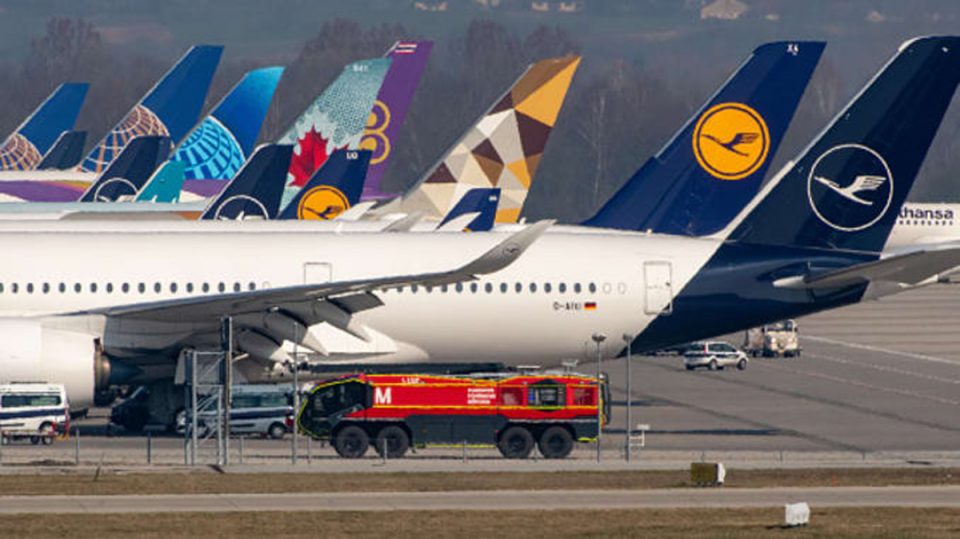Foreign airlines have, for the umpteenth time, appealed to the Federal Government to release and assist in the repatriation of trapped funds in excess of $743 million.
The airlines, under the aegis of the International Air Transport Association (IATA), regretted that earlier entreaties to the House of Representatives, Ministry of Aviation and the Central bank of Nigeria (CBN) did not yield a workable solution to flatten the debt burden.
Almost a year ago, the current round of airlines’ stuck fund crisis surfaced in the aviation sector as foreign exchange liquidity crunch struck the entire economy.
The CBN’s intervention in August 2022, led to the approval of $265 million for the airlines, leaving a balance of $200 million in the stuck fund wallet. The effort, however, did very little to placate the crisis as international airfares that are sold in Nigeria continued to spike with attendant pressure on the airlines’ blocked funds.
Today, Nigeria holds the odd record of topping a list of 21 countries withholding $2.2 billion revenue of foreign airlines globally. IATA spokesperson, Katherine Kaczynska, in a statement, said Nigeria is withholding $743 million in revenue, which is the highest amount of blocked funds. Nigeria is on the list followed by Algeria’s $165 million, and Lebanon’s $146 million. Kaczynska added that the heavy backlog made it necessary to further appeal to the government to revisit the difficult situation and in favour of the airlines.
Last December, IATA warned that the amount of airline funds for repatriation being blocked by governments had risen by $394 million in the last six months, which was a 25 per cent increase at the time. It called on governments to remove all barriers to airlines repatriating their revenues from ticket sales and other activities.
Apart from Nigeria’s $743 million debt, Kaczynska added that countries under the West African Economic and Monetary Union owed $132 million. Also on the list is Zimbabwe, which has severe foreign currency shortages and up to $80 million in blocked airline funds.
In the heat of the crisis in October, the national carrier of the United Arab Emirates (UAE), Emirates Airlines, had pulled out of Lagos and Abuja routes in protest against the poor handling of the blocked fund catastrophe.
The airline regretted that not much has changed in five months of its exit from Nigeria. The airline, in a statement by its management, said the backlog of about $100 million was still stranded in Nigeria and the main reason the airline had not reconsidered returning to the Lagos and Abuja lucrative routes.
“As of today, Emirates still has a substantial balance of blocked funds that have yet to be repatriated, and the progressive clearing of our backlog remains beset with constant delays. Today, around 50 per cent of the amount approved for clearing within our backlog is still overdue for repatriation.
“We have made many concerted efforts to enable a swift return to Nigeria. We had proposed a number of solutions and measures to recover our funds, and engaged in dialogue with government stakeholders and industry bodies. Regretfully and despite many media reports of public assurances made at the highest levels, solutions continue to be stalled,” the management stated.
Emirates acknowledged that the wider aviation industry and the local value chain it supports in Nigeria face a similar market reality of the protracted foreign exchange liquidity crisis. The airline, however, added that unless there is a committed strategy by the local authorities to deliver concrete action, air services for travellers, for businesses seeking global market opportunities and for investments – all supported through air transport and critical to Nigeria’s economic recovery – would continue to dwindle.
“We remain committed to finding a mutual resolution with the Nigerian government and Central Bank to repatriate the rest of our blocked funds in a swift manner, and provide a roadmap that includes firm measures to prevent future repatriation accumulation challenges and delays. We call on them to work with us, hand in hand, to ensure Nigerian travellers and businesses have unfettered connectivity and access to our global network,” the statement read in part.


previous post


